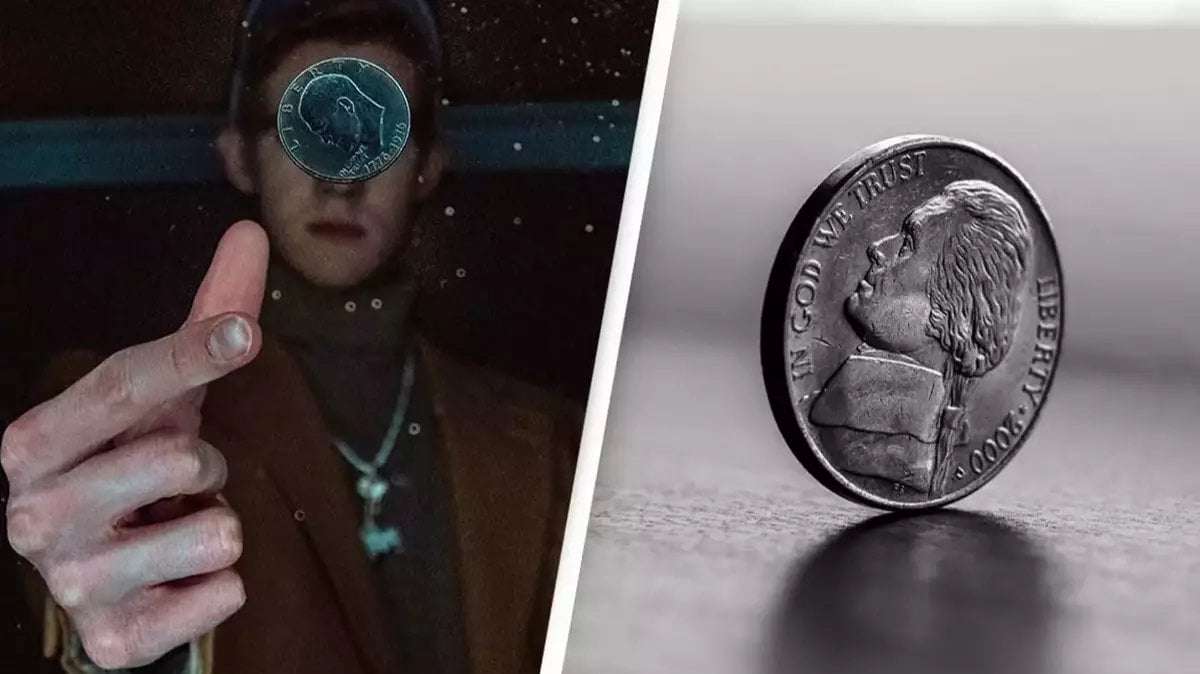I'm not much of a gambler, but I think it's safe to say that 50/50 odds are pretty good.
With just as much chance of you winning as there is of you losing, people often rely on 50/50 odds to help make decisions - like deciding who's turn it is to take out the trash.
A coin is often used in these kinds of situations, with the theory being that there's an equal chance that it will land on 'heads' as there is that it will land on 'tails'.
As it turns out, however, that's not actually true. And it's not due to a case of 'heads I win, tails you lose'.
The revelation comes from a preregistered study which recorded the results of 350,757 coin tosses, and suggested that there is in fact a tiny bias involved in the flipping of any coin.
The study involved with 48 people who flipped 350,757 coins from 46 currencies. After all of this flipping, the researchers found that the coins had a 50.8 percent chance of landing on the side that it started on.
This is down to a theory called the Diaconis Model, which the researchers used to claim that coins are more likely to land facing the same way they were when the coin toss began.
A paper explains: "According to the Diaconis model, precession causes the coin to spend more time in the air with the initial side facing up.
"Consequently, the coin has a higher chance of landing on the same side as it started (i.e., ‘same-side bias’)."
So, because the coin faces the same way more in the air as it did when it started, there is in theory a tiny bias towards that side.
To help put the findings into context, the team continued: "The magnitude of the observed bias can be illustrated using a betting scenario.
"If you bet a dollar on the outcome of a coin toss (i.e., paying 1 dollar to enter, and winning either 0 or 2 dollars depending on the outcome) and repeat the bet 1,000 times, knowing the starting position of the coin toss would earn you 19 dollars on average.
"This is more than the casino advantage for six-deck blackjack against an optimal-strategy player, where the casino would make $5 on a comparable bet, but less than the casino advantage for single-zero roulette, where the casino would make $27 on average."
So, with this knowledge on your side, why not challenge someone to a coin toss and see if the odds are in your favor?

Giraff3 on March 31st, 2024 at 23:34 UTC »
They found that the coins had a 50.8% chance to land on the side it started from. “This is down to a theory called the Diaconis Model, which the researchers used to claim that coins are more likely to land facing the same way they were when the coin toss began.” The paper addresses that the coins did not have heads-tails bias (such as due to weighting), which indicates the side of the coin facing up does have an effect. The title of this post is slightly wrong though because it’s not that coins aren’t 50/50, it’s that you can theoretically increase your odds of winning the flip if you can control what side is facing up before flipping.
Without factoring in this knowledge, I can’t think of a systematic reason why people would favor starting the coin on one side so in the long run it should still even out to 50/50. The study has some slightly odd methodology which I think could be affecting the results though.
Specifically, it says that if people didn’t catch the flip in their hand it was designated a failure and they repeated the flip. I’ve never heard of not honoring a coin flip regardless of where it lands as long as it’s flat on something. I wonder if the effect would be diminished without this feature of the study design.
The paper also links to an example of one of their coin flipping sessions. Pretty funny, they literally flip coins for 12 hours straight.
classactdynamo on March 31st, 2024 at 20:22 UTC »
I think the real hypothesis that we have proven is that this scientist does not understand statistics. What a fucking waste of time.
JCMiller23 on March 31st, 2024 at 20:13 UTC »
This seems to prove that many people don't know how to flip coins properly